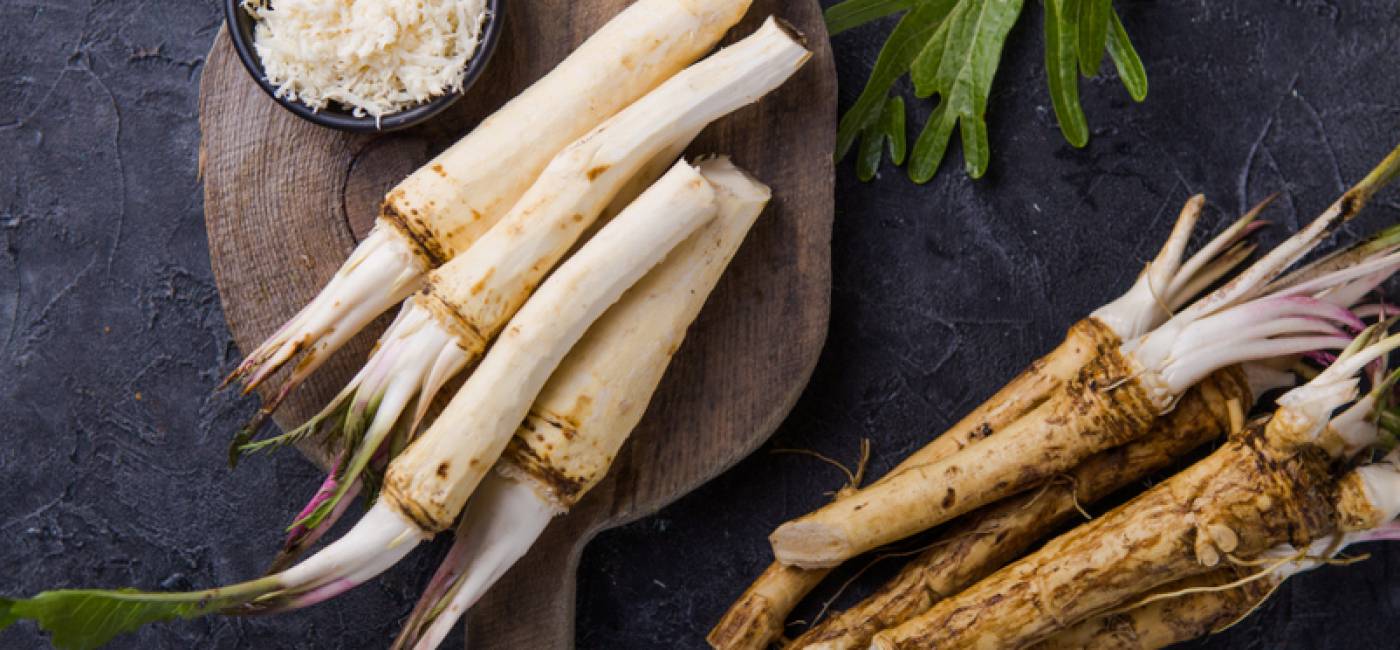Horseradish – “the farmer’s antibiotic”

The healing powers of horseradish have been known since the Middle Ages and are still an important part of the natural pharmacy today. The spiciness of horseradish - also called horseradish - makes it a healthy medicinal plant. The root of the plant is mainly used in the kitchen as well as in naturopathy. The hardy root vegetable can withstand temperatures as low as -50 degrees.
Freshly grated horseradish is particularly high in healthy mustard oils, flavonoids, vitamins C and B, enzymes and minerals. The mustard oils help against many different germs, inhibiting their growth or even "switching them off" completely.
Horseradish has a bactericidal, blood circulation-enhancing, antispasmodic and warming effect. Among other things, it stimulates the appetite and promotes digestion, is a natural remedy for urinary tract infections, strengthens the immune system and helps with diseases of the upper respiratory tract.
As a natural "penicillin", horseradish kills over 80% of intestinal parasites and is therefore also an excellent remedy for treating worms.
Horseradish can be taken or used freshly grated, in tincture form, as an ointment, powder, oil extract, or capsules.
Caution is advised when taking blood-thinning medication! Always seek medical or pharmaceutical advice on dosage and use.
Horseradish - honey for urinary tract infections: Mix a teaspoon of freshly grated horseradish with honey 3 times a day and let it slowly melt on your tongue when you take it.